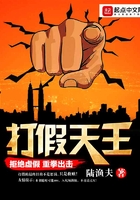Who We Are, Why We Care
Late in the evening as light fades away
In silence we gather together
Searching the faces of those who are here
For those who have left us forever
Where are the ones who caught flame in the night
Fired up by the heat of devotion
Measuring their lives by the light of the truth
They burned like a lamp on the ocean
Who will remember the words of the brave
That lifted us higher and higher
Who will remember the price that they paid
For lives lived too close to the fire
Hearts of the ones who inherit your lives
Will rest in the truth you have spoken
Memory will echo the trust that you kept
Like you, it will never be broken
What will I leave
What will I leave
What will I leave behind
When I am gone
Who'll carry on
What will I leave behind[1]
PHILOSOPHER AND ACTIVIST, educator and songwriter, we have been friends since we were fifteen and sixteen, have made a life together and raised three children—and yes, we're still friends and partners after writing a book together, a process that alternately fascinated and worried our friends and family, not to mention us.
This project started about ten years ago when we discovered that we had both come to the same recognition: Privatization—the corporate takeover of everything public—was a looming issue that must not be ignored if we wanted to serve the causes we had long made our work in the world.
Si started his life work as an activist and organizer in 1965 when he went south to join the Student Nonviolent Coordinating Committee, fondly referred to by its acronym SNCC (pronounced snick), the dynamic student wing of the southern civil rights movement. He has been organizing for political, social, and economic justice at the grassroots level ever since. For him, privatization is also a movement, but this time by the most powerful and privileged, whose goal is to undo all that civil rights, labor, feminists, and other progressive movements have struggled so hard to achieve. In this book, he tells several stories from his experiences and his work to show why he sees privatization this way, and what he has been doing about it.
Twenty-five years ago Si founded Grassroots Leadership,[2] a multiracial team of activists who do civil rights, labor, and community organizing throughout the South, building on and continuing the history of progressive southern movements for justice. When Si and his co-workers realized the threat of privatization, they reoriented their whole organization to take it on. As organizers do, they looked for a key issue on which to work. You may want to take on the whole world at once, but to win you have to pick your issue, find a focus that speaks powerfully to people who are ready to act.
Grassroots Leadership chose as their issue prison privatization, the takeover of public prisons, jails, and detention centers by newly established private prison corporations, because it so directly connects with the enduring issues of racial and class inequalities that still poison the quest for justice. We write about for-profit private prisons in this book as both a prime example and a worst case scenario of privatization.
Elizabeth realized that the threat of privatization had to be named, understood, and taken on while she was doing her work as a philosopher, feminist, and educator. Both the need for and resistance to the great movements of our times—movements for full and equal rights for all of us, for peace, to protect the environment—revealed, she believed, a massive failure of the dominant Western tradition that had to be set right if these movements were to change minds and hearts as well as actions and laws. It is hard to undo prejudices when trusted authorities like teachers and famous books keep them alive, and all too respectable.
So, for over thirty years Elizabeth had been working to change what is taught in colleges and universities to make it genuinely inclusive. Studying the real lives of women, of racial minorities, people with disabilities, poor people, sex/gender minorities, exploited ethnic groups, formerly colonized peoples in order to help educators change and enrich their courses, it dawned on her that all these people and groups had been privatized. They had all been shut out of public life, denied rights and responsibilities. They were owned, bought and sold, hired and fired, forced to labor as no more than resources for those who used them.
The great movements of our and earlier times had challenged all that. More and more people and groups had “come out,” taken their rights, won some freedom—they had become effective public players. The powers that be wanted that stopped. How to stop it? Attack and discredit the movements, take over or at least limit the government that had responded by extending rights and powers to those so long denied them—and shut those troublesome people back into privatized lives.
From the Grassroots
Ten years ago, Elizabeth joined a small gathering of Grassroots Leadership staff, board members, and allies[3] that Si had convened to talk about privatization. Much of the understanding that informs this book came from such talk with people, as well as from the many books and studies we have read, and found invaluable, since then. It is among people who have been privatized, denied public rights and protections, that what privatization means for real lives, for all-too-real experiences, may be clearest.
Picture that group of women and men, African Americans and white people. We are sitting in a living room looking out on the street. It's the spring of 1995 in our hometown of Charlotte, North Carolina; the trees and flowers are in bloom everywhere. Elizabeth asked what private, public, and privatization meant. Here are some of the comments, taken from the narrative notes of that meeting.
“Given my people's history here in America, the only safe space is the public space. Without the government, people like me are up the creek without a paddle. The government recognizes this, and is moving toward the private place, where I am once again excluded.”
“I see it as being more about control, having a handle to shut out. I think of privatization as a gate to come into the city. They can say who comes into that city and who can't come into that city. Just like this home, it becomes private when you can dictate who comes into that home, and public when you can't dictate. On the level of how we're going to run America, keeping out refugees, shutting our doors—because it's public, because America is under the system it's under, it has to allow a certain proportion to enter.”
“The political right, when they use the term ‘less government,’ I deem that as saying to me that, with less government, it would remove accountability and responsibility from the ways in which the country has to respond to me.”
“Public and private schools are a clear way of showing the difference. There have been cases where, because a school is public, they had to provide for handicapped, for everybody, race, class, and gender. In a private school, you had to pass a test, you had to go by their rules, they set the agenda. We have one private school that flies the Confederate flag—and there are some black kids that attend there.”
“In my head, the distinction between public and private is a trust issue. In my adult life, I've felt more trust in the public, in government, as slow and imperfect as it is, to eventually come around and give me rights. The more people have input, the safer I've felt. I trusted federal more than state more than local. The closer to the individual, the less safe I felt. We lived in a town of four hundred in eastern North Carolina where the chief of police had a ‘Wallace for President’ bumper sticker [George Wallace ran successfully for governor of Alabama as a rabid segregationist]. He found a black man walking down the street with a goatee and pulled it out with a pliers.”
“The only thing we have to wage a struggle is that this is a semblance of democracy. When slaves, women, black people had no rights, there was a struggle, but they had no rights, they were struggling in a vacuum. It's only in the public sphere that you can wage a struggle.”
“That's the problem we have, when we allow people we don't have any negotiations with to make decisions for us. If they're of us, they have to include what we say. But if they're not of us, they don't have to.”
So, you see, we didn't start our study of privatization as a dry and wonky matter of public policy. We didn't start by thinking about it as just a matter of government contracting out some of its work to for-profit corporations, or an increase in the number and kind of “partnerships” between the public and private sectors.
We don't focus on, although we mention briefly, the takeover of public functions and goods by religious institutions and other nonprofit organizations, which deserves a book of its own. We do discuss the separation of church and state as basic to preserving the integrity of both religion and democracy. These kinds of privatization can pose threats to democracy too. But the greatest danger comes from the privatizing corporations that make use of both religious and secular nonprofit organizations.
We didn't start with the idea that government is the enemy, either. We started with the on-the-ground realization that privatization was being put forward by people and powers that had consistently opposed struggles for equality, for a democracy that could be true to its own claimed ideals and a government that backed those ideals with real actions.
The Fox in the Henhouse begins, then, with our sense of alarm, of threat, to provisions for democracy that we and so many others have turned to in our work for justice, freedom, equality.
We have drawn on our own ways of thinking and expressing ourselves. Elizabeth, who became a philosopher because she so needed to try to understand the world whole, its injustices and cruelties as well as its truths and beauties, cannot help but ask moral as well as political questions, and she loves to analyze those of other people. Si, a civil rights, labor, and grassroots community organizer who also does his work through the songs he writes and sings, cannot keep from remembering his formative experiences in the southern civil rights movement, and never has been able to keep from singing. So there are also songs here. And there is passion, fed both by love of the dream of democracy and the people it should serve, and by fear-fueled anger at the powers that are threatening what we love.
“But don't you think sometimes privatization works and is a good solution? I mean, do you want us to believe it is never good? Isn't that too extreme?”
It is not extreme to believe that a democratic government must ensure that the people retain control of provisions and protections for the public good. The profit-hungry fox should not be set to guard our henhouse.
“Well, but it's really too late for all that. So much is already privatized; it can't be turned back. What we need to do is figure out how to make it work for the public good, don't you think?”
It is not too late. And there is work to be done.
Some Clarifications
In this book, we focus on the aspects of privatization that worry us most, those that involve the largest and most powerful corporations. We call them the privatizing corporations—although, for economy, we sometimes just say corporations.
So when we use the word “corporation” in this book, we're not referring to so-called mom-and-pop stores that have incorporated (that is, gone through the legal process of becoming corporations) for tax purposes. We're not thinking about nonprofit organizations that incorporate and seek tax-deductible status so that people who give them charitable contributions can deduct those donations from their taxes.
The corporate privatizers are also not the same as the progressive, socially committed entrepreneurs who are trying to make business a force for social responsibility. So when we talk about the threat of privatization to democracy, we are not referring to corporations that are trying to walk the walk of socially responsible practices, and not just talking the talk for public relations reasons.
We also distinguish between the privatizing corporations and the individuals who are their employees. Systems surpass individuals in power, so they are our focus. Nevertheless, each individual—each of us—is responsible for how we act in relation to the institutions and systems we are part of, that affect our lives and those of others. We are vastly different with regard to the freedom we have to make choices, the power we have and the risks we take if we act, but still we do make choices. To deny that is to deny that there is any freedom left.
We believe that we are free, and that we—all of us—are responsible for the choices we make.
Acknowledgments
Writing is supposed to be one of the loneliest professions. As coauthors, we have been much less alone than most. But the truth is that almost no one really writes a book alone, any more than someone alone develops a system of philosophic thought, or teaches a class, or organizes a textile mill or a campaign to abolish private prisons. We are who we are, we become who we become, we do what we do, in relation to other people.
The two of us, Elizabeth Minnich and Si Kahn, have been remarkably fortunate in the many friends and allies who have helped us think through and write about the issues in The Fox in the Henhouse. They have given us inspiration, guidance, information, critique.
We are particularly grateful to those who read and commented on various drafts of the manuscript: Dave Beckwith, Heather Booth, Stephanie Bosch, Nova Brown, David Cohen, Josh Dunson, Troy Duster, Alex Friedmann, Colin Greer, Chris Kromm, Gerda Lerner, Susan Seefelt Lesieutre, Ann Matranga, Phil Mattera, Stephen Nathan, Father Brian O'Donnell, Steve Piersanti, Amelie Ratliffe, Jack Schultzius, Joe Uehlein, Matt Witt, and Amy Yu.
For conversation, information, and inspiration over years, and for supporting both this project and our work on privatization in many different but always important ways, we thank Scott Ainslie, Harriet Barlow, Nancy Barnes, Margaret Blanchard, Paul Booth, Lisa Codispoti, Larry Cohen, Bruce Colburn, Chuck Collins, Nidia Cordova-Vasquez, Ernie Cortés, Torri Estrada, Betsy Fairbanks, Marjorie Fine, Helena Huang, William Johnston, Donna Katzin, Peter Kinder, Scott Klinger, Kerry Korpi, Larry Kressley, Jill Kriesky, Raquiba LaBrie, Gara LaMarche, Don Lane, Greg LeRoy, Lance Lindblom, Michael Lipsky, Josh Mailman, John McCutcheon, Joshua Miller, David Morris, Caryn McTeague Musil, Bob Nicklas, Andy Norman, Lincoln Pain, Donna Parsons, Jean Pogge, Miles Rapaport, Donna Red Wing, Rabbi David Saperstein, Carol Geary Schneider, Steve Snow, Alan Solomont,
Andy Stern, Brooks Sunkett, Urvashi Vaid, Steve Viederman, and Harmon Wray. We also thank Laurie Clement, University of Iowa Labor Center, for the great phrase, “Public, it's ours; private, it's theirs.”
We want to sound a particular note of appreciation for our researcher, Debbie Alicen, for tracking down so many references with speed and grace; please contact her at debgaryalicen@alumni.unc.edu if you're looking for professional research assistance.
Si Kahn wishes to acknowledge and thank the members of the Grassroots Leadership staff and board who are, except for Elizabeth Minnich, his closest working and thinking companions: current board members Sara Evans, Anton Gunn, Leslie Hill, James Melvin Holloway, Dan Horowitz de Garcia, Joseph Jordan, Mafruza Khan, Easter Maynard, Chandra Talpade Mohanty, Mitty Owens, Mary Priniski, June Rostan, Pete Tepley, and Tawana Wilson-Allen; past board members Stewart Acuff, James Andrews, Yolanda Banks, Julia Beatty, Katie Foster, Jereanne King, Brad Lander, Carolyn Mints, Lenora Bush Reese, Kate Rhee, and Robert West; current staff members Alfreda Barringer, Marianna Dorta, Bob Libal, Kamau Marcharia, Pam Pompey, Tonyia Rawls, Les Schmidt, Silky Shah, Naomi Swinton, and Gail Tyree; and past staff members and consultants Marilyn Baird, Xochitl Bervera, Margaret Chambers, Michael Cooper, Ali Fischer, Michelle Handler, Cathy Howell, May Va Lor, Michelle McNeil, Stella Nkomo, Tema Okun, Kevin Pranis, Megan Quattlebaum, Pam Rogers, Marguerite D. Rosenthal, James Williams, and Precious Williams.
Si also wishes to thank Josh Dunson at Real People's Music, his representative for concerts and lectures for almost thirty years, as well as his close friend and adviser (www.realpeoplesmusic.com).
Working with the extraordinary team at Berrett-Koehler has been part of the pleasure of writing this book. Publisher Steve Piersanti is not only a wise and enthusiastic editor. He has created a socially responsible corporation that reminds us of what is possible. We would particularly like to acknowledge the members of the B-K team with whom we have worked most closely: Sandra Beris, Michael Crowley, Molly Fenn, Kristen Frantz, Linda Jupiter, Ken Lupoff, Dianne Platner, Jeevan Sivasubramaniam, Jenny Williams, and Rick Wilson.
Finally, we wish to acknowledge how much the women's movement, the labor movement, and the southern civil rights movement have meant to us. If we were to list all of the wonderful people we met in and through these movements, who have helped give meaning and direction to our lives, it would take a book of its own. We remember and thank them for their work in this world.
Charlotte, North Carolina Si Kahn
July 2005 Elizabeth Minnich
注释:
[1]Si Kahn, “What Will I Leave,” I'll Be There (Chicago: Flying Fish Records, 1989).
[2]For more information, see the Grassroots Leadership website: www.grassrootsleadership.org.
[3]Participants included current Grassroots Leadership staff members Kamau Marcharia, Alfreda Barringer, and Naomi Swinton; former staff members James Williams and Margaret Chambers; former board member Sally Thomas; and South Carolina United Action staff member Corry Stevenson.















